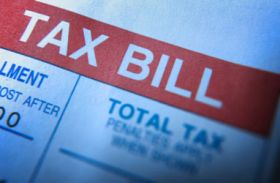Do I lower my US income tax liabilities if I retire or work abroad?
Tabitha Paddock - Greenback Expat Tax Services
Yes, you can. Even after you move abroad, US citizens must still file a Federal Return if they are receiving income. Fortunately there are some big exclusions and credits in place to limit (or even eliminate) this tax liability. These include the Foreign Earned Income Exclusion and the Foreign Tax Credit.
Together, these credits will make your US liability much lower than when you were living in the States. In fact, with the Foreign Tax Credit, you could...
Yes, you can. Even after you move abroad, US citizens must still file a Federal Return if they are receiving income. Fortunately there are some big exclusions and credits in place to limit (or even eliminate) this tax liability. These include the Foreign Earned Income Exclusion and the Foreign Tax Credit.
Together, these credits will make your US liability much lower than when you were living in the States. In fact, with the Foreign Tax Credit, you could even get a credit on your US taxes to carry forward on next year’s taxes (this would happen if you are paying more in tax to Panama than you would have been to the US).
Posted February 19, 2013
Charles Evan - Panama Chuck's Everything Store
Here is my test ansawer.
Here is my test ansawer.
Posted December 4, 2013
Mike Cobb - ECI Development
 It is possible to lower your US taxes if you qualify for the Foreign Earned Income Tax Exclusion.
It is possible to lower your US taxes if you qualify for the Foreign Earned Income Tax Exclusion. This is a very precise mechanism allowed by the US Tax Code. Consult an accountant or lawyer to see if you qualify.
 It is possible to lower your US taxes if you qualify for the Foreign Earned Income Tax Exclusion.
It is possible to lower your US taxes if you qualify for the Foreign Earned Income Tax Exclusion. This is a very precise mechanism allowed by the US Tax Code. Consult an accountant or lawyer to see if you qualify.
Posted December 30, 2013
Jackie Lange - Panama Relocation Tours
If you receive Social Security or other pension income, it does not qualify for the Foreign Earned Income Exemption (FEIE). They are considered passive income.
If you have ACTIVE income from a job or business, then you can take advantage of the FEIE. There are rules of course. It is best to consult with an international tax attorney or CAP who specializes in international taxes for more details.
If you have ACTIVE income from a job or business, then you can take advantage of the FEIE. There are rules of course. It is best to consult with an international tax attorney or CAP who specializes in international taxes for more details.
Even if you can't reduce your...
If you receive Social Security or other pension income, it does not qualify for the Foreign Earned Income Exemption (FEIE). They are considered passive income.
If you have ACTIVE income from a job or business, then you can take advantage of the FEIE. There are rules of course. It is best to consult with an international tax attorney or CAP who specializes in international taxes for more details.
If you have ACTIVE income from a job or business, then you can take advantage of the FEIE. There are rules of course. It is best to consult with an international tax attorney or CAP who specializes in international taxes for more details.
Even if you can't reduce your income taxes, you will be probably be able to reduce your cost of living my moving offshore.
Posted May 27, 2014
Robert Adams - Retirement Wave
If you are working abroad and are receiving income from the United States, you are allowed a certain amount of income that you can exclude from US income tax. I don’t keep up with the exact number, but I think it’s up to in the range of US $90,000 or more these days; I’m not sure. However, this is for people who are employed overseas or who have earned income overseas, as opposed to income made from a sale of a house or the sale of stock.
Earned income can be...
Earned income can be...
If you are working abroad and are receiving income from the United States, you are allowed a certain amount of income that you can exclude from US income tax. I don’t keep up with the exact number, but I think it’s up to in the range of US $90,000 or more these days; I’m not sure. However, this is for people who are employed overseas or who have earned income overseas, as opposed to income made from a sale of a house or the sale of stock.
Earned income can be free of taxation at a state and federal level, but only to a certain limit. That’s one primary difference relative to US income tax liabilities between living overseas and living in the US. It’s a big difference if you have earned income. It does not affect any taxes that might be due though on the sale of assets or social security if you’re getting it and you need to pay taxes for one reason or another.
If you earn money overseas under normal circumstances and you have a record of any taxes paid there, you typically can deduct those taxes paid overseas from the taxes you have to pay in the United States, but you always have to check with a professional as it may be different in some nations. Many countries have treaties with the US on this but it’s a accepted practice that people do not pay taxes twice. Once to another nation and again to the US without recognizing the other tax. They make an allowance for that.
Earned income can be free of taxation at a state and federal level, but only to a certain limit. That’s one primary difference relative to US income tax liabilities between living overseas and living in the US. It’s a big difference if you have earned income. It does not affect any taxes that might be due though on the sale of assets or social security if you’re getting it and you need to pay taxes for one reason or another.
If you earn money overseas under normal circumstances and you have a record of any taxes paid there, you typically can deduct those taxes paid overseas from the taxes you have to pay in the United States, but you always have to check with a professional as it may be different in some nations. Many countries have treaties with the US on this but it’s a accepted practice that people do not pay taxes twice. Once to another nation and again to the US without recognizing the other tax. They make an allowance for that.
Posted November 20, 2014
Kristin Wilson - Orbis Relocation
 I'm not technically allowed to give tax advice because I am not a licensed accountant, CPA, or tax attorney but I can comment that there are some generally well-known schemes.
I'm not technically allowed to give tax advice because I am not a licensed accountant, CPA, or tax attorney but I can comment that there are some generally well-known schemes.For Americans, the bottom line is we're required to pay taxes on worldwide income regardless of where we live or for how long we lived there. You can move out of America and for never come back, but you still have to pay taxes. You still have to declare your taxes in America and pay whatever you owe.
...
 I'm not technically allowed to give tax advice because I am not a licensed accountant, CPA, or tax attorney but I can comment that there are some generally well-known schemes.
I'm not technically allowed to give tax advice because I am not a licensed accountant, CPA, or tax attorney but I can comment that there are some generally well-known schemes.For Americans, the bottom line is we're required to pay taxes on worldwide income regardless of where we live or for how long we lived there. You can move out of America and for never come back, but you still have to pay taxes. You still have to declare your taxes in America and pay whatever you owe.
This is not the case for other countries. In Spain, for example, if people want to change their tax domicile to a different country, they can do that. They wouldn't have to pay taxes and fees anymore. It's not like that in America. A lot of people think if they leave America that they don't have to pay taxes but that’s not true. You definitely need to hire a licensed person to look at your exact situation and give you advice. There are a lot of expats who are accountants out there. Qualified tax advice for expats is definitely something that's becoming more in demand as more people move and technology gets better and becomes easier and cheaper for people to travel and move around.
For US citizens, there’s also an income tax exclusion. Over the years it has increased to now it’s over $100,000 per year. There are a few different ways to qualify for it. One of the ways that people talk about it a lot is being outside of the country for 330 days a year. There are other ways to qualify for it. Any accountant who deals with these international matters would know.
Another thing to be aware of is that you have to declare your accounts. It's a pretty big topic. It's very complex and our tax code is very complex. There's a lot to think about. For this reason, I have never done my taxes on my own. It just gets complicated especially if you're living and working in more than one country.
There are, perhaps, ways to reduce your US tax liability. I know of a lot people who didn’t even file their taxes for 3 years or 5 years. Make sure you're on top of it so that you don't run into any sort of problems or penalties or things like that down the road. It's better to be upset about filing and paying now and get through it the right way than to avoid it and just assume that you don't have to pay anything and get in trouble later.
(Pictured: Kristin Wilson working in Costa Rica in a hammock.)
Posted August 10, 2015
David McKeegan
 Whether or not you lower your US income tax liabilities if you retire or work abroad really depends on your personal situation and where you choose to retire.
Whether or not you lower your US income tax liabilities if you retire or work abroad really depends on your personal situation and where you choose to retire. If you are paying taxes locally you can use the Foreign Tax Credit to get a dollar for dollar tax credit on your US taxes. If you are in a zero tax country you can use the Foreign Earned Income Exclusion to exclude the first US $100,800 (tax year 2015) of your income from US taxes. This can...
 Whether or not you lower your US income tax liabilities if you retire or work abroad really depends on your personal situation and where you choose to retire.
Whether or not you lower your US income tax liabilities if you retire or work abroad really depends on your personal situation and where you choose to retire. If you are paying taxes locally you can use the Foreign Tax Credit to get a dollar for dollar tax credit on your US taxes. If you are in a zero tax country you can use the Foreign Earned Income Exclusion to exclude the first US $100,800 (tax year 2015) of your income from US taxes. This can really help lower your tax liability.
(Resort near Santa Maria Beach, Nicaragua,pictured.)
Posted November 13, 2015
Stewart Patton - U.S. Tax Services
 Yes, you can absolutely lower your US tax liabilities abroad . Living outside the U.S. creates amazing opportunities to lower your worldwide tax bill--sometimes even to $0. That's right, depending on your specific situation, you may be able to grow wealth while not paying tax to any government, all completely legally.
Yes, you can absolutely lower your US tax liabilities abroad . Living outside the U.S. creates amazing opportunities to lower your worldwide tax bill--sometimes even to $0. That's right, depending on your specific situation, you may be able to grow wealth while not paying tax to any government, all completely legally. On the U.S. side of things, the main strategy here is to own an active business through a non-U.S. corporation and...
 Yes, you can absolutely lower your US tax liabilities abroad . Living outside the U.S. creates amazing opportunities to lower your worldwide tax bill--sometimes even to $0. That's right, depending on your specific situation, you may be able to grow wealth while not paying tax to any government, all completely legally.
Yes, you can absolutely lower your US tax liabilities abroad . Living outside the U.S. creates amazing opportunities to lower your worldwide tax bill--sometimes even to $0. That's right, depending on your specific situation, you may be able to grow wealth while not paying tax to any government, all completely legally. On the U.S. side of things, the main strategy here is to own an active business through a non-U.S. corporation and actually participate in the operation of that business. That way, your non-US corporation itself is not subject to U.S. tax (assuming that its business is conducted outside the U.S.), and then your non-U.S. corporation can pay you a salary of up to about $100,000, which will be free of U.S. tax as long as you qualify for the Foreign Earned Income Exclusion (the "FEIE"). You can qualify for the FEIE by staying outside the U.S. for at least 11 months per year. Or, if you want to spend more time in the U.S., you can become a "bona fide resident" of another country and still qualify for the FEIE even if you spend up to 4 months per year in the U.S.
Now, the above is just a high-level overview--there are of course some ins and outs there. But the bottom line is, if you own and operate the sort of business that you can do from anywhere, living outside the U.S. provides tremendous opportunities to grow tax-free wealth.
(Pictured: hotel in Virgin Islands)
Posted November 16, 2015
John Ohe - Hola Expat Tax Services
 When you retire abroad and you have just pension or Social Security income, your tax liability will not change because there's nothing that the US government offers you as a retiree that allows exempting retirement income from taxation. Your US taxes will be basically the same as if you were living in the US if your only source of income is retirement or pension income.
When you retire abroad and you have just pension or Social Security income, your tax liability will not change because there's nothing that the US government offers you as a retiree that allows exempting retirement income from taxation. Your US taxes will be basically the same as if you were living in the US if your only source of income is retirement or pension income. However, if you are working abroad, whether you are working for a company...
 When you retire abroad and you have just pension or Social Security income, your tax liability will not change because there's nothing that the US government offers you as a retiree that allows exempting retirement income from taxation. Your US taxes will be basically the same as if you were living in the US if your only source of income is retirement or pension income.
When you retire abroad and you have just pension or Social Security income, your tax liability will not change because there's nothing that the US government offers you as a retiree that allows exempting retirement income from taxation. Your US taxes will be basically the same as if you were living in the US if your only source of income is retirement or pension income. However, if you are working abroad, whether you are working for a company abroad or working for yourself, there are ways to eliminate or dramatically lower your tax burden because the IRS allows you a couple of different options on the tax return itself.
One is something called the Foreign Earned Income Exclusion whereby approximately US $100,000 worth of foreign earned income could be excluded from your tax return. Let's say you make $100,000 working for some foreign or US company and you're physically working abroad. The $100,000 shows up on your tax return as a wage, while a minus $100,000 would appear further down on that tax return to wipe it out so that you basically have no tax liability.
There are certain tests that you must qualify for to be able to utilize the Foreign Earned Income Exclusion. For most expats who are permanently living abroad, qualifying is quite easy.
There are people who live abroad in higher tax jurisdictions where the effective tax rate that they are paying in that country is higher than it would be in the US. Even in Third World countries like Peru, for example, if you're making a modest income, you're paying more taxes in Peru than you would in the US. In this case, the preferred way to avoid or eliminate tax on the US tax return would be to utilize foreign tax credits.
The reason I say that the foreign tax credit is preferable in this situation is that it could potentially wipe away all US taxes because every dollar paid in foreign taxes is offset in the US. If you have foreign tax credits left over, which means you paid more taxes locally than you would have in the US, these get carried over.
The same expat who then moves from a high tax jurisdiction to a lower tax jurisdiction country, could use his or her carry over tax credits in a place where he or she would be paying less taxes than in the US. These carry over credits could be bankable.
Another reason why foreign tax credits are great for people who have children is that the child tax credit was eliminated a couple of years ago when one utilizes the Foreign Earned Income Exclusion on the tax return. Now, if you're using the foreign tax credit to eliminate your tax liability and you've got two kids under the age of 17, you could potentially get $2,000 in tax refund from the IRS without having paid any taxes to the IRS. This is why utilizing foreign tax credits can be the preferred way of taking care of your US tax return.
If you're using the Foreign Earned Income Exclusion and you qualify via either one of the two tests, it is possible to still pay no taxes in the country in which you are making the money if that country utilizes what's called a territorial tax system or has a zero tax rate. There are many countries in the world that have a zero tax rate or a territorial tax system. One example of a country with a territorial tax system is Panama.
If you are a US tax payer working in Panama and/or making money in Panama, it could be possible that you make $100,000 in Panama, utilize the Foreign Earned Income Exclusion to exclude out that $100,000 from the US tax return, and pay Panama zero taxes.
There are many expats who have local businesses or work for a local company and they pay taxes. There are people who work online and they are off the radar screen. If you're off the radar screen in a foreign country and you're not paying any taxes locally, you would not utilize the foreign tax credit because you haven't paid any taxes. You would clearly use the Foreign Earned Income Exclusion.
The tax situation mentioned in Panama as an example, I would bucket this more generally as a situation wherein if you are not paying taxes locally, then clearly the Foreign Earned Income Exclusion would be the preferred method.
For those with dual citizenship who have businesses in the country that they're in and paying local taxes that are higher than what they would pay in the US, it would be better to utilize the foreign tax credits.
(The beach town of Mazunte, near Oaxaca,Mexico, pictured.)
Posted August 1, 2017


